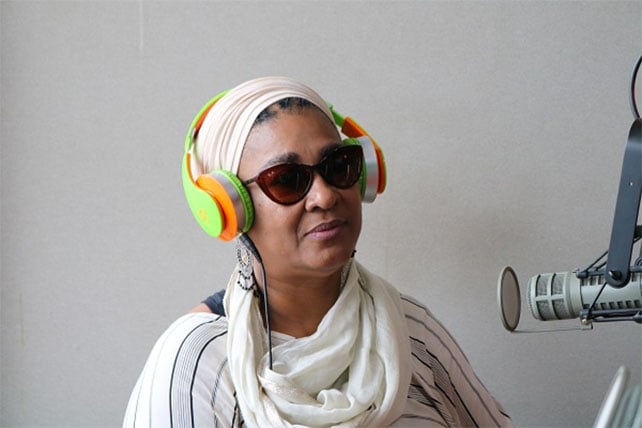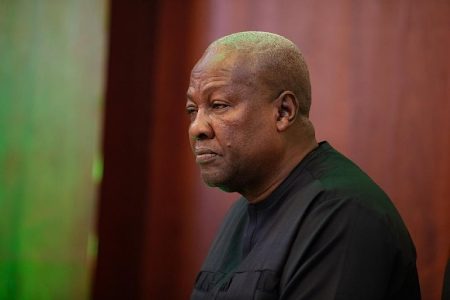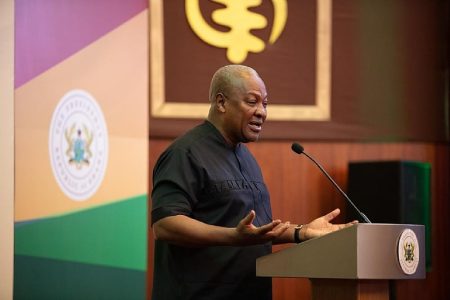Paulina Oduro, a seasoned highlife musician, has stepped forward to address misinterpretations of her comments regarding Kofi Kinaata’s absence from the Artiste of the Year category at the 26th Telecel Ghana Music Awards (TGMA). The controversy erupted following the announcement of the TGMA nominations, which saw Kinaata excluded from the prestigious Artiste of the Year category despite the resounding success of his “Kofi oo Kofi” EP and multiple nominations in other categories. Fans expressed disappointment, leading to speculation and commentary within the music industry and across social media platforms. Oduro’s initial remarks, intended to offer encouragement and support to Kinaata, were subsequently misconstrued and amplified by certain media outlets, sparking further debate and necessitating her clarification.
The core of the misinterpretation revolved around the perceived comparison of Kinaata’s stature as an artist to the significance of the TGMA itself. Some blogs reported that Oduro had claimed Kinaata was “bigger” than the awards show, a statement she vehemently denies. In her clarification on Empire 102.7 FM, Oduro stressed the importance of accurate reporting, urging bloggers and media outlets to verify information before disseminating it to the public. She emphasized that her original intent was to reassure Kinaata, acknowledging his widespread popularity and impact on the Ghanaian music scene, and suggesting that his worth as an artist transcended any single award or nomination.
Oduro’s actual message, as clarified, was aimed at consoling and uplifting Kinaata in light of his omission from the Artiste of the Year category. Her point was that Kinaata’s established success and widespread acclaim across Ghana rendered the nomination less critical to his overall standing in the music industry. She acknowledged the disappointment fans might feel but encouraged them to focus on Kinaata’s continued artistic contributions and widespread influence rather than dwelling on the absence of a specific award nomination. Her message emphasized the importance of intrinsic artistic merit over external validation through awards, while still acknowledging the significance of platforms like the TGMA.
The misinterpretation of Oduro’s comments underscores the power of media narratives and the potential for miscommunication, particularly in the digital age where information spreads rapidly and often without proper verification. It highlights the responsibility of media outlets to exercise due diligence and ensure the accuracy of their reporting, recognizing the potential impact on the individuals involved and the broader public discourse. The incident also emphasizes the role of artists and public figures in clarifying their statements and correcting inaccuracies, preventing the perpetuation of misleading narratives and mitigating potential harm.
The episode surrounding Kinaata’s omission from the Artiste of the Year category and the subsequent misinterpretation of Oduro’s comments has also brought into focus the broader discussion surrounding the role and significance of music awards. While awards undeniably provide a platform for recognition and celebration of artistic achievement, they are also subject to subjective criteria and can ignite controversy and debate. The incident serves as a reminder that an artist’s value and contribution to the industry extend beyond the confines of award nominations and wins, encompassing their impact on the cultural landscape, their influence on fellow artists, and their connection with their audience.
In summary, Paulina Oduro’s clarification serves to correct the record regarding her comments about Kofi Kinaata and the TGMA. She emphasizes the need for accurate reporting and responsible media practices, highlighting the potential for misinterpretation and the importance of verifying information before dissemination. The incident also provides an opportunity to reflect on the significance of music awards, acknowledging their role in recognizing artistic achievement while recognizing that an artist’s true value extends beyond any single accolade or nomination. Oduro’s message underscores the importance of focusing on artistic contribution, audience connection, and overall impact on the music landscape, rather than solely on external validation through awards.














